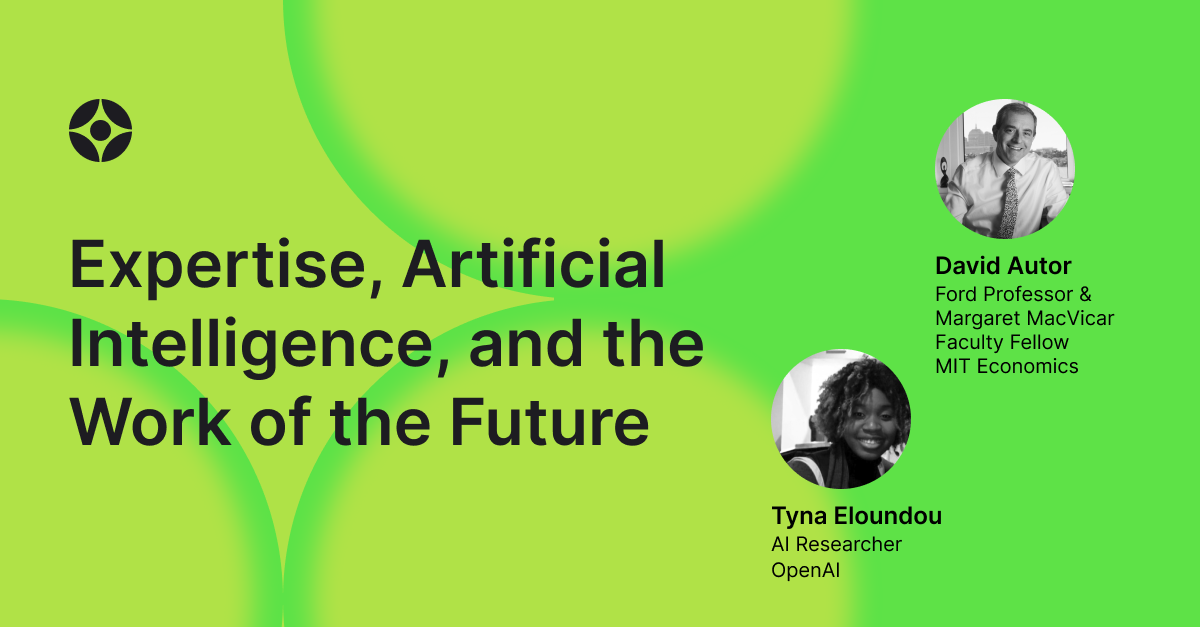
Expertise, Artificial Intelligence, and the Work of the Future Presented by David Autor
About the Talk:
Much of the value of labor in industrialized economies derives from the scarcity of expertise rather than from the scarcity of labor per se. In economic parlance, expertise denotes a specific body of knowledge or competency required for accomplishing a particular objective. Human expertise commands a market premium to the degree that it is, first, necessary for accomplishing valuable objectives, and second, scarce, meaning not possessed by most people. Will AI increase the value of expertise by broadening its relevance and applicability? Or will it instead commodify expertise and undermine pay, even if jobs are not lost in net. Autor will present a simple framework for interpreting the relationship between technological change and expertise across three different technological revolutions. He will argue that, due to AI’s malleability and broad applicability, its labor market consequences will depend fundamentally on how firms, governments, NGOs, and universities (among others) invest to develop its capabilities and shape its applications.
About the Speakers:
David Autor is Ford Professor in the MIT Department of Economics, codirector of the NBER Labor Studies Program and the MIT Shaping the Future of Work Initiative. His scholarship explores the labor-market impacts of technological change and globalization on job polarization, skill demands, earnings levels and inequality, and electoral outcomes. The Economist magazine labeled Autor in 2019 as “The academic voice of the American worker.” Later that same year, and with equal justification, he was christened “Twerpy MIT Economist” by John Oliver of Last Week Tonight in a segment on automation and employment.
Tyna Eloundou is a researcher at OpenAI, whose most recent work includes leading safety evaluations, economic impact evaluations, and the democratic inputs to AI grant program. Currently, she leads the Collective Alignment team, which is conducting research and building systems to integrate collective input about how our models should behave.
Speakers
Attendees

















